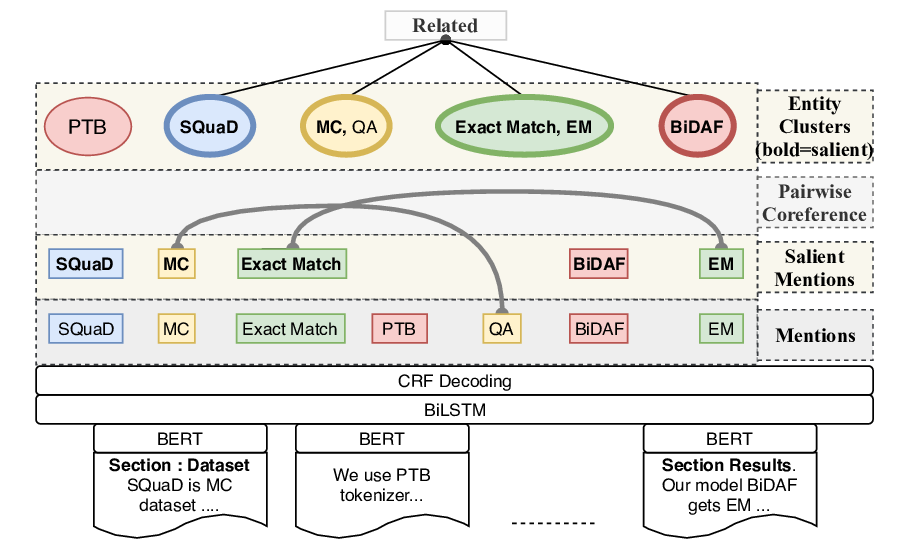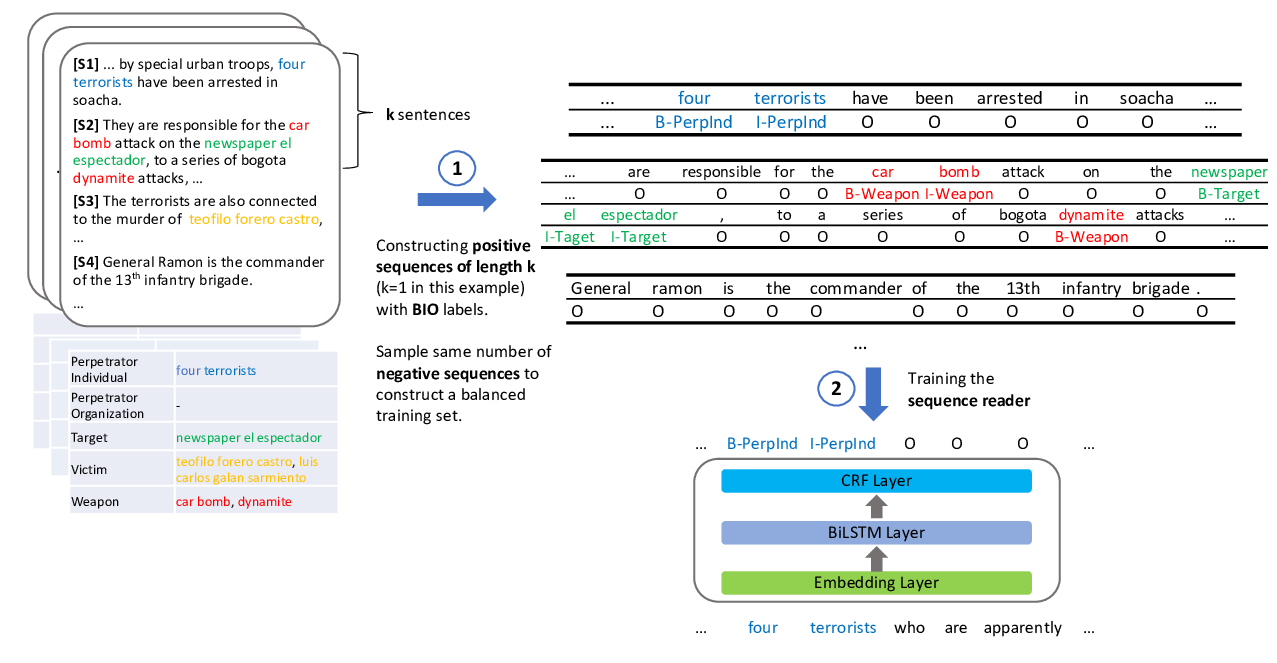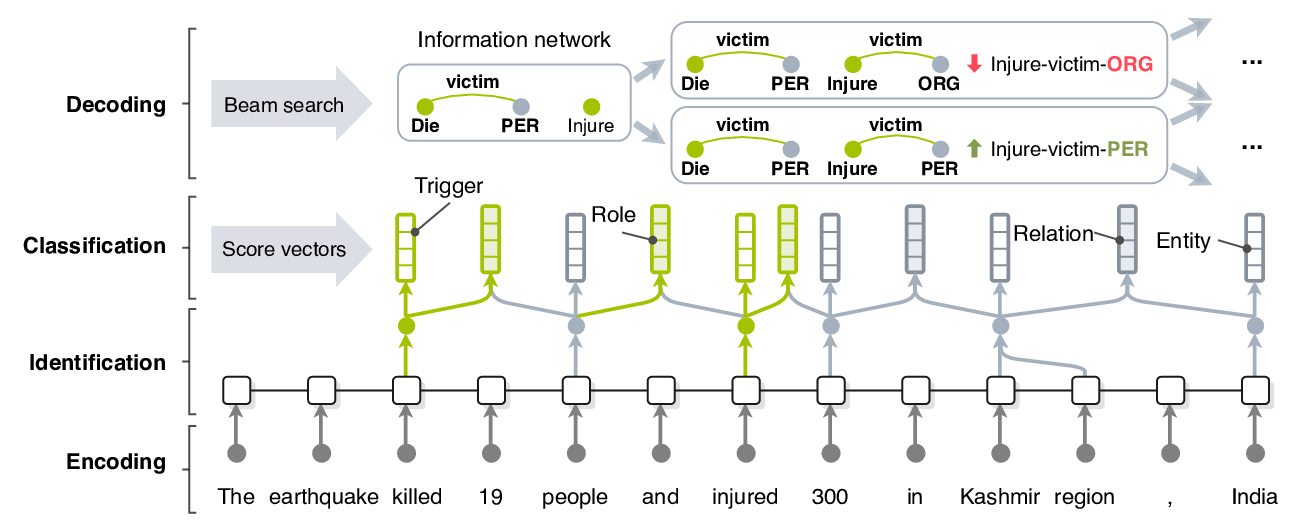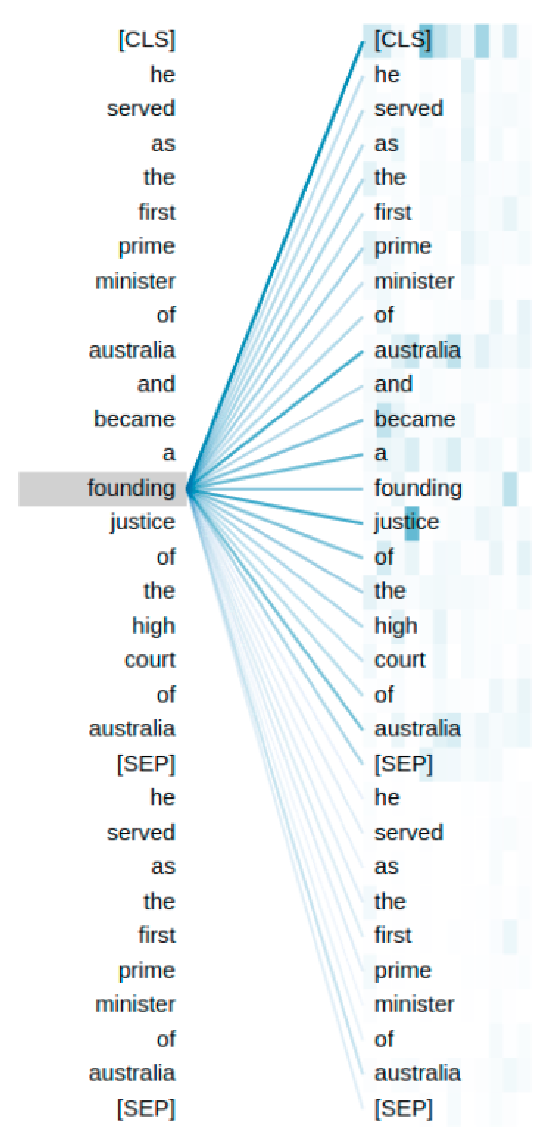In Layman’s Terms: Semi-Open Relation Extraction from Scientific Texts
Ruben Kruiper, Julian Vincent, Jessica Chen-Burger, Marc Desmulliez, Ioannis Konstas
Information Extraction Long Paper
Session 2B: Jul 6
(09:00-10:00 GMT)

Session 3B: Jul 6
(13:00-14:00 GMT)

Abstract:
Information Extraction (IE) from scientific texts can be used to guide readers to the central information in scientific documents. But narrow IE systems extract only a fraction of the information captured, and Open IE systems do not perform well on the long and complex sentences encountered in scientific texts. In this work we combine the output of both types of systems to achieve Semi-Open Relation Extraction, a new task that we explore in the Biology domain. First, we present the Focused Open Biological Information Extraction (FOBIE) dataset and use FOBIE to train a state-of-the-art narrow scientific IE system to extract trade-off relations and arguments that are central to biology texts. We then run both the narrow IE system and a state-of-the-art Open IE system on a corpus of 10K open-access scientific biological texts. We show that a significant amount (65%) of erroneous and uninformative Open IE extractions can be filtered using narrow IE extractions. Furthermore, we show that the retained extractions are significantly more often informative to a reader.
You can open the
pre-recorded video
in a separate window.
NOTE: The SlidesLive video may display a random order of the authors.
The correct author list is shown at the top of this webpage.
Similar Papers
SciREX: A Challenge Dataset for Document-Level Information Extraction
Sarthak Jain, Madeleine van Zuylen, Hannaneh Hajishirzi, Iz Beltagy,

Document-Level Event Role Filler Extraction using Multi-Granularity Contextualized Encoding
Xinya Du, Claire Cardie,

A Joint Neural Model for Information Extraction with Global Features
Ying Lin, Heng Ji, Fei Huang, Lingfei Wu,

IMoJIE: Iterative Memory-Based Joint Open Information Extraction
Keshav Kolluru, Samarth Aggarwal, Vipul Rathore, Mausam -, Soumen Chakrabarti,
